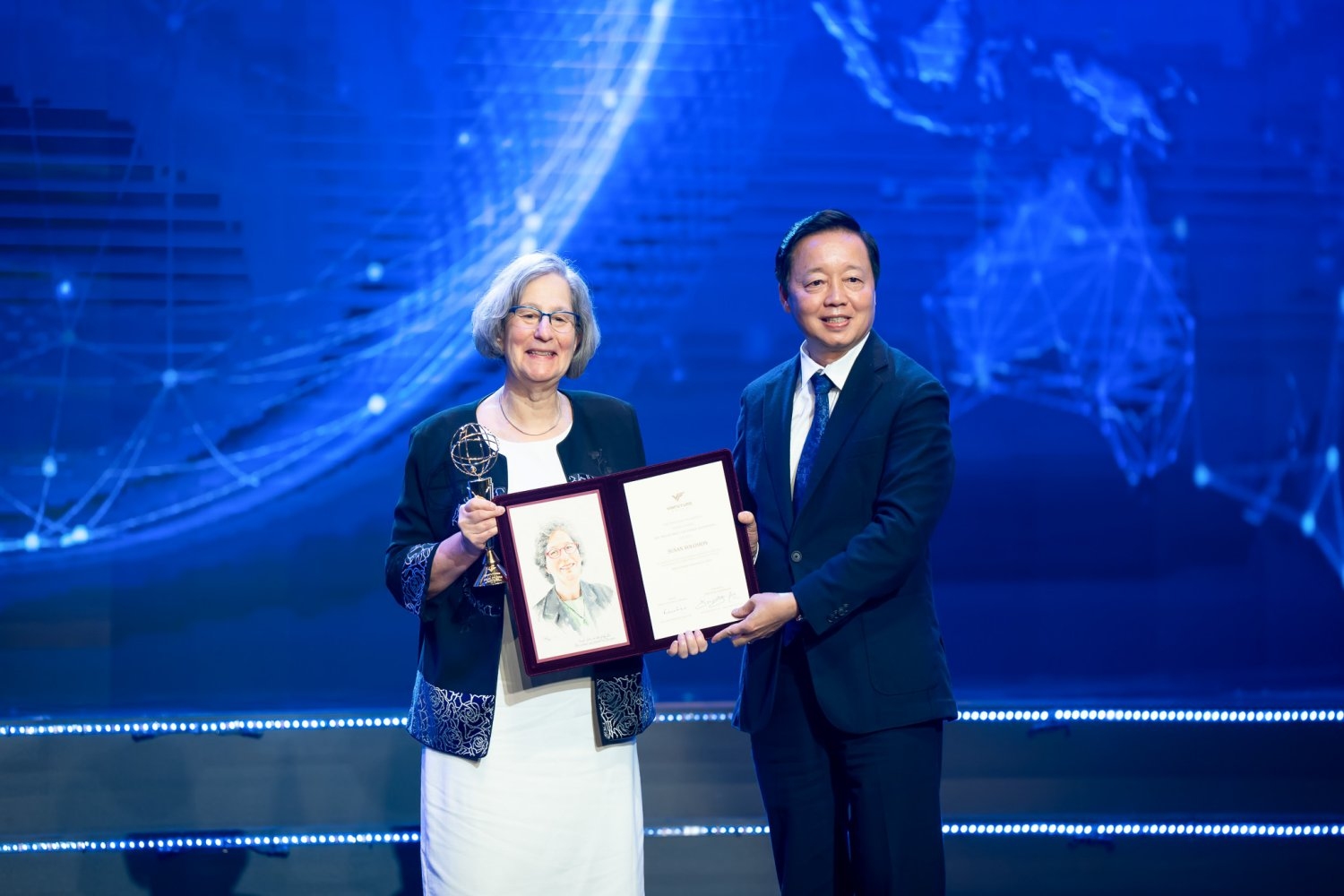
The award recognizes Solomon’s contributions to understanding ozone depletion and the creation of the Montreal Protocol.
Paige Colley | EAPS
Lee and Geraldine Martin Professor of Environmental Studies Susan Solomon has been awarded the 2023 VinFuture Award for Female Innovators. Solomon was picked out of almost 1,400 international nominations across four categories for “The discovery of the ozone depletion mechanism in Antarctica, contributing to the establishment of the Montreal Protocol.” The award, which comes with a $500,000 prize, highlights outstanding female researchers and innovators that can serve as role models for aspiring scientists.
“I’m tremendously humbled by that, and I’ll do my best to live up to it,” says Solomon, who attended the ceremony in Hanoi, Vietnam, on Dec. 20.
The VinFuture Awards are given annually to “honor scientific research and breakthrough technological innovations that can make a significant difference” according to their site. In addition to Female Innovators, the award has two other special categories, Innovators from Developing Countries and Innovators with Outstanding Achievements in Emerging Fields, as well as their overall grand prize. The awards have been given out by the Vietnam-based VinFuture Foundation since 2021.
“Countries all around the world are part of scientific progress and innovation, and that a developing country is honoring that is really very lovely,” says Solomon, whose career as an atmospheric chemist has brought her onto the international stage and has shown her firsthand how important developing countries are in crafting global policy.
In 1986 Solomon led an expedition of 16 scientists to Antarctica to measure the degradation of the ozone layer; she was the only woman on the team. She and her collaborators were able to figure out the atmospheric chemistry of chlorofluorocarbons and other similar chemicals that are now known as ozone-depleting substances. This work became foundational to the creation of the Montreal Protocol, an international agreement that banned damaging chemicals and has allowed the ozone to recover.
Solomon joined the MIT faculty in 2012 and holds joint appointments in the departments of Chemistry and Earth, Atmospheric and Planetary Sciences. The success of the Montreal Protocol demonstrates the ability for international cooperation to enact effective environmental agreements; Solomon sees it as a blueprint for crafting further policy when it comes to addressing global climate change.
“Women can do anything, even help save the ozone layer and solve other environmental problems,” she says. “Today’s problem of climate change is for all of us to be involved in solving.”
